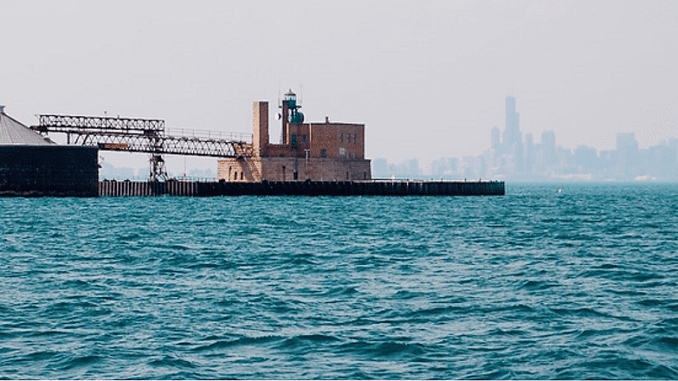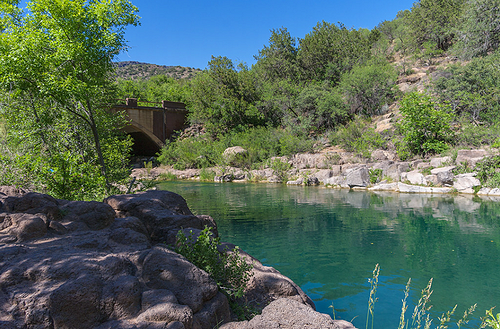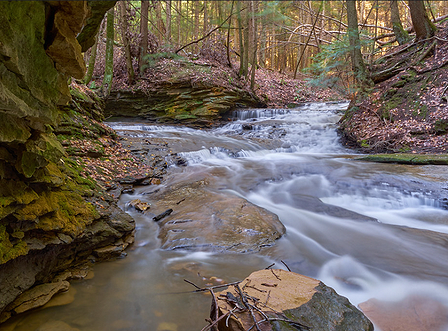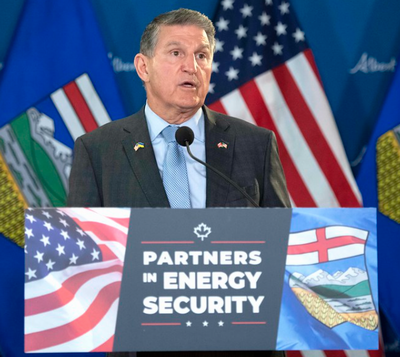
WASHINGTON, DC, October 18, 2022 (ENS) – Fifty years ago today the Clean Water Act of 1972 became law, requiring America to protect and restore the crucial waterways that must sustain ecosystems, communities, and the economy. Now, a new law is providing the funding to accomplish those goals.
Last November, in a rare bipartisan move, the deeply divided U.S. Congress passed the Bipartisan Infrastructure Law, which will deliver more than $50 billion to the U.S. Environmental Protection Agency for water infrastructure investments starting in this – the Clean Water Act’s 50th Anniversary Year.
It’s the single largest investment in water that the U.S. government has ever made, said President Joe Biden on Monday as he proclaimed October 18 to be the 50th Anniversary of the Clean Water Act.
“Our historic Bipartisan Infrastructure Law makes our nation’s biggest-ever investment in water, clearing legacy pollution, helping replace lead pipes across the country, and building more resilient infrastructure so that every child in America can turn on the faucet at home or school for safe drinking water,” President Biden reminded Americans less than a month before the November mid-term elections that will decide the balance of power in Congress for the next two years.

Back in 1972, the Clean Water Act established the basic structure for regulating pollutant discharges into the waters of the United States and gave the EPA the authority to implement pollution control programs such as setting wastewater standards for industry.
Before this signal legislation, America’s waters were in crisis. Industrial waste and sewage menaced drinking water sources, and wetlands were vanishing even faster than they are today.
The Clean Water Act set and enforced national water quality standards, restricted pollution, and invested in wastewater treatment and better wetlands management.
“Once dead rivers and lakes are now flourishing with wildlife. People have returned to boat, fish, and swim. Sacred waters that Tribal Nations have relied on for generations are clean again,” Biden said. “This is a testament to the tireless partnerships that the Environmental Protection Agency has forged with state, local, and tribal governments.”

“It is a powerful tribute not only to the activists who first sounded the alarm, built a movement, and fought to pass this powerful law but also to the Americans everywhere who have since done so much to help enforce it, safeguarding our waterways and taking on polluters in court,” the President said.
But at the same time, Biden warned about current threats to American waters. “Today, we still face serious threats to clean water – from climate change-driven droughts and rising sea levels to long-standing environmental injustices that have left too many communities without safe drinking water.”
But Biden pointed with pride to the accomplishments of his administration in the 22 months since he took office.
“My administration restored federal protections to hundreds of thousands of streams, wetlands, and waterways and is working across the federal government to combat pollution from deadly per- and polyfluoroalkyl substances,” the President said.
Today, on the 50th anniversary of the Clean Water Act, America’s drinking water is still under threat, not just from historically severe drought that has shrunk rivers and streams, lakes and reservoirs, but also from America’s need for oil and gas in the current energy crisis brought on by Russia’s war in Ukraine.
Which Is More Important Water – or Energy?
Plus, politically a clean water cliffhanger has been taking place in the U.S. Senate. Until September 27, it appeared that a bill would be approved to fast-track the permitting and construction of energy projects at the expense of legally-required environmental review of the projects’ impact on water and other natural resources.
Proposed by U.S. Senator Joe Manchin, a Democrat who represents the coal-producing state of West Virginia, the Energy Independence and Security Act of 2022 would have made it easier to pursue extraction activities such as pipelines, mining and oil drilling, while avoiding environmental impact studies required under the National Environmental Policy Act, NEPA.
It looked set to pass, but then, on September 27, Senator Manchin asked that his bill be removed from a must-pass Continuing Resolution to fund the government, because it might not be approved.
“It is unfortunate that members of the United States Senate are allowing politics to put the energy security of our nation at risk,” Manchin said. “The last several months, we have seen firsthand the destruction that is possible as Vladimir Putin continues to weaponize energy. A failed vote on something as critical as comprehensive permitting reform only serves to embolden leaders like Putin who wish to see America fail.”
“For that reason and my firmly held belief that we should never come to the brink of a government shutdown over politics, I have asked Majority Leader [Chuck] Schumer to remove the permitting language from the Continuing Resolution we will vote on this evening.”

“Over the last several weeks there has been broad consensus on the urgent need to address our nation’s flawed permitting system. I stand ready to work with my colleagues to move forward on this critical legislation to meet the challenges of delivering affordable reliable energy Americans desperately need,” Manchin said.
“We should never depend on other countries to supply the energy we need when we can produce it here at home. Accelerating the construction of energy infrastructure is critical to delivering that energy to the American people and our allies around the world,” Manchin said. “Inaction is not a strategy for energy independence and security.”
Lisa Frank, executive director of the nonprofit Environment America’s Washington Legislative Office, said her organization is pleased that the energy rush will still be subject to NEPA environmental impact studies.
“Environment America is glad Senate leaders halted their rush to permit more pipelines, mines and other energy projects, including the Mountain Valley Pipeline. ‘Move fast and break things’ was a questionable approach for a social media company, but it’s even more suspect when applied to projects that could irreversibly harm our environment. Sen. Manchin’s request to remove his Energy Independence and Security Act of 2022 from legislation to fund the government is good news for our environment.”
EPA Started Clean Water Act Celebration Tour Months Ago
The Bipartisan Infrastructure Law, passed November 15, 2021, will supply EPA with some $50 billion for improvements to America’s drinking water, wastewater, and stormwater infrastructure – the largest single investment in water that the U.S. government has ever made.
On August 5 in Seattle, U.S. EPA Assistant Administrator for Water Radhika Fox joined EPA Regional Administrator for the Pacific Northwest Casey Sixkiller, Washington Department of Ecology Director Laura Watson and local leaders to kick off the cross-country 50th Anniversary of the Clean Water Act celebration tour.
“When Congress passed the Clean Water Act in 1972, with an overwhelming bipartisan majority, it charted a new path for America’s waters. And as a result, we have seen transformational progress over the last 50 years and many communities are returning to their waters,” said Fox.
“Here in the Pacific Northwest, our iconic waterbodies are the lifeblood of our communities,” EPA Regional Administrator Casey Sixkiller said. “We depend on them for so many things – drinking water, transportation and goods movement, recreation, our culture and our way of life. In many ways, water defines us.”
“The Clean Water Act fueled the Puget Sound National Estuary Program and our highly successful partnerships with state, tribal, local governments and NGOs,” Sixkiller said. “Together we have made great progress to protect and restore the Sound and together we’ll continue this critically important work.”
“The Clean Water Act is critical to protecting the Salish Sea, tribal communities and everyone who lives in the region,” said Northwest Indian Fisheries Commission Executive Director Justin Parker.
“Today we are celebrating real progress, but looking ahead, we face greater challenges from population growth, climate change, and pollution discharged into our foods and water. While Puget Sound and Coastal waters are beautiful and vibrant, they’re also threatened by wastewater treatment and accumulation of toxics,” Parker explained.
“The EPA-tribal partnership has made significant strides, but the environment is in crisis and our treaty rights are at risk,” said Parker. “We must build from our success, engage science and urgently advance Clean Water Act protections for the next 50 years.”
Leading up to the 50th Anniversary on October 18, the tour visited waters essential to healthy people amd ecosystems, agricultural productivity and economic growth. Stops included the Florida Everglades, Chesapeake Bay, the Great Lakes, the Cuyahoga River, and the San Francisco Bay.
President Biden is hopeful, saying, “As we celebrate the anniversary of this law, my administration is more committed than ever to continuing its legacy, providing access to safe water, and restoring a healthier planet. The Clean Water Act is a powerful reminder of Americans’ ability to make change for the better when we work together.”
Pointing to the law he and the Congressional Democrats negotiated with Senator Manchin, the President said, “The Inflation Reduction Act takes America’s most aggressive climate action ever, helping to protect the world’s waterways long into the future.”
Featured image: One of Chicago’s water cribs, where water is pumped from Lake Michigan to supply parts of the region with drinking water. (Photo by Eric Allix Rogers courtesy Drinkingwater123.org)



